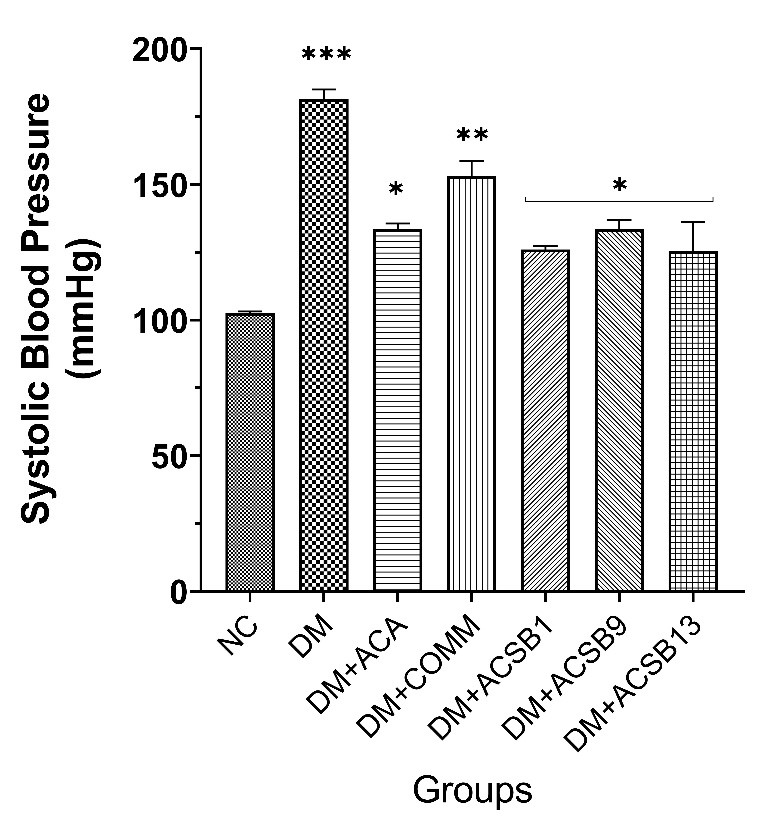Effects of Dietary Inclusion of Varying Blends of Acha, Chia, and Soycake on Hypertension in a Streptozotocin/HFD-Induced Type-2 Diabetes Mellitus Model
DOI:
https://doi.org/10.54117/ijnfs.v4i1.82Keywords:
DIABETES, HYPERTENTION, CARDIOPROTECTIVE, LIPID PEROXIDATION, ACARBOSEAbstract
Type-2 diabetes (T2DM) and hypertension are interconnected health challenges with significant global morbidity. This study evaluates the effects of dietary inclusion of blends of Acha, Chia, and Soycake on hypertension in a streptozotocin (STZ)/high-fat diet (HFD)-induced T2DM model. Forty-two male Wistar rats were divided into seven groups of control, untreated T2DM rats, and T2DM rats treated with acarbose or varying percentage inclusion of Acha, Chia, and Soycake composite biscuits. Hemodynamic parameters, lipid peroxidation, and lipid profiles were evaluated. Results showed that STZ/HFD-induced T2DM rats had elevated systolic and diastolic blood pressures and oxidative stress markers, as well as disordered lipid profiles compared to the control. Interestingly, the varying blends of Acha, Chia, and Soycake composite biscuits reduced systolic and diastolic blood pressure, improved lipid profiles, and decreased oxidative stress in T2DM rats. Inferentially, the significant reductions in hemodynamic parameters, lipid peroxidation, triglycerides, and low-density lipoprotein cholesterol (LDL-c), coupled with elevated high-density lipoprotein cholesterol (HDL-c), highlight the cardioprotective potential of the composite biscuits. The composite biscuits’ beneficial effects were attributed to the bioactive components, such as omega-3 fatty acids, isoflavones, and dietary fiber in Acha, Chia, and Soycake, which collectively improve lipid metabolism, mitigate inflammation, and restore vascular flexibility. Conclusively, the blends outperformed acarbose (the standard antidiabetic drug) in some parameters, indicating their therapeutic potential as a significant dietary strategy for the management of T2DM and its hypertensive complications. The study recommended further studies to investigate the impact of biscuit processing on polyphenolic content and ascertain the composite biscuits’ therapeutic effects in clinical settings.

Downloads
Published
How to Cite
Issue
Section
License
Copyright (c) 2025 Oluwafunmilayo C. Ogunnowo, Olufunmilayo S. Omoba , Aderonke I. Olagunju, Olamide W. Fasakin , Sunday I. Oyeleye

This work is licensed under a Creative Commons Attribution 4.0 International License.
